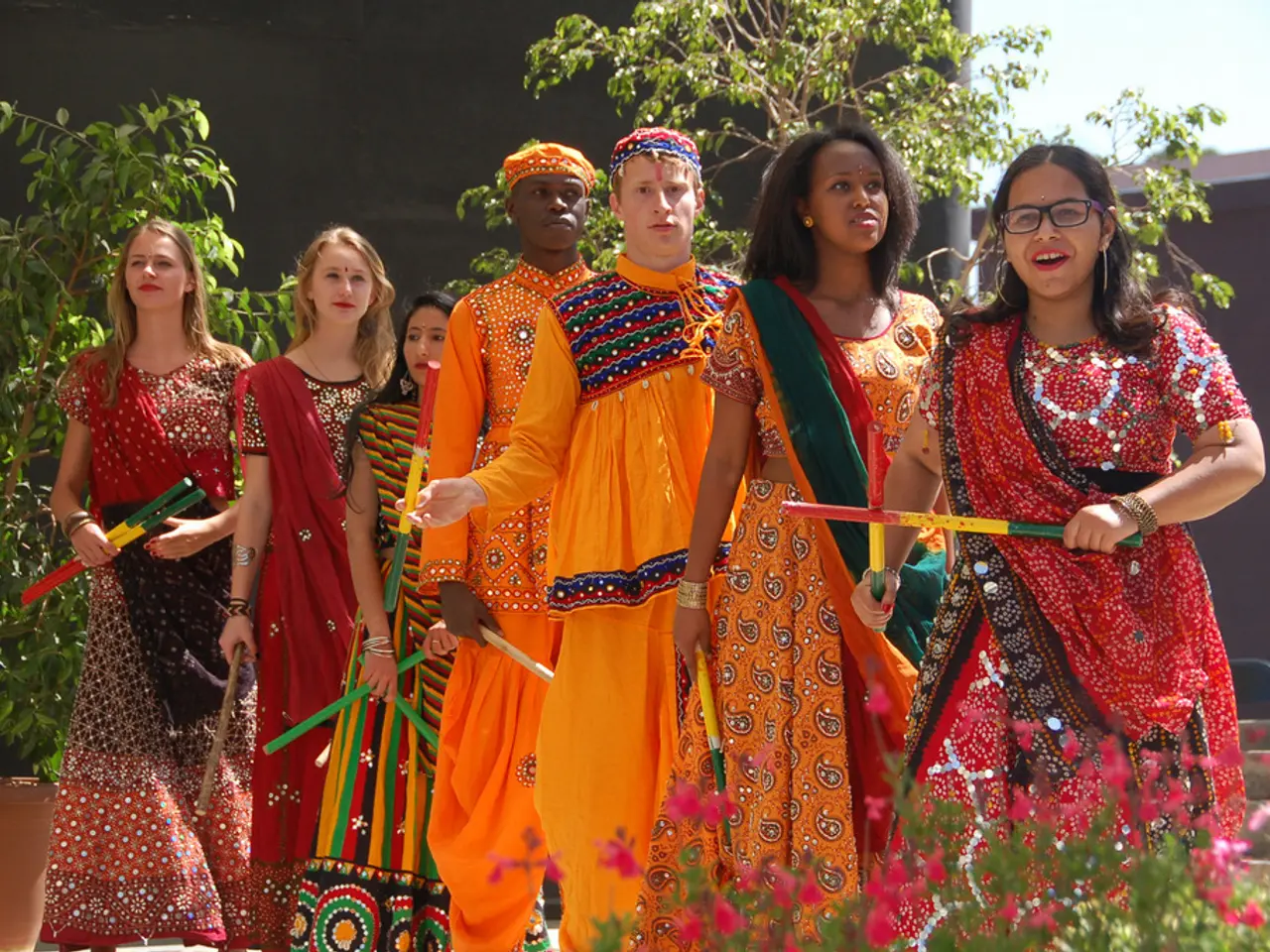Shivraj Singh Chouhan, in reaffirmation, underlines the commitment of Prime Minister Modi to prioritize the welfare of farmers and artisans, echoing his Swadeshi vision on National Handloom Day in India.
On the occasion of National Handloom Day, celebrated on August 7th, Union Agriculture Minister Shivraj Singh Chouhan emphasised the Indian government's commitment to strengthening the handloom sector, particularly through empowering women-led Self Help Groups (SHGs).
During a virtual interaction with lakhs of SHG members across the country, Minister Chouhan praised the significant contribution of these women in preserving India's rich local arts. He also expressed satisfaction over the growing number of 'Lakhpati Didis', SHG members earning over Rs 1 lakh annually, under the National Rural Livelihood Mission (NRLM).
The government's initiatives aim to empower SHG women by providing better market access, branding, skill enhancement, and financial support. One such initiative is the Small Cluster Development Programme (SCDP), which offers financial assistance to develop weaver groups, including SHGs, as self-sustainable entities.
To give handloom products a distinct identity and ensure quality assurance, the government launched the Handloom Mark in 2006 and later the India Handloom Brand (IHB) in 2015. The IHB helps link weavers directly to consumers, enhancing their earnings. Prominent apparel brands have also launched exclusive collections under IHB, boosting visibility and market reach.
In addition, the government has engaged 23 e-commerce companies to promote online marketing of handloom products, expanding market access digitally. SHGs led by women have access to skill upgradation, modern design inputs, and mentorship, which supports professional product photography and digital cataloguing to enhance online and offline visibility.
Regional empowerment efforts, like the partnership between Cairn Oil & Gas and Assam State Rural Livelihoods Mission (ASRLM), have established handloom centers supporting over 3,000 women SHG members. These centers train artisans to produce traditional and marketable products, contributing to their economic independence.
Minister Chouhan also acknowledged concerns raised by SHG women regarding marketing and branding. He assured that the government would work seriously on these issues and would provide training in design and innovation based on market demand.
During the event, held at Krishi Bhawan, New Delhi, Minister Chouhan called on citizens to adopt the 'Vocal for Local' approach, especially during festivals like Raksha Bandhan and other upcoming celebrations. He reiterated that no agreement with any country would come at the cost of Indian farmers, artisans, or small entrepreneurs.
As of the event, over 1.5 crore women have reached this milestone, and the mission aims to empower up to 3 crore women soon. Many members shared how the NRLM has not only provided economic stability but also enhanced their social standing. Minister Chouhan hailed the contribution of SHG women in preserving India's local arts, emphasising that handloom is a symbol of self-reliance and was once a powerful tool in India's non-violent freedom movement.
The Indian government's comprehensive approach to strengthening the handloom sector reflects a commitment to empowering women-led SHGs, ensuring their economic growth, and preserving India's rich cultural heritage.
- The Indian government's initiatives to empower women-led Self Help Groups (SHGs) in the handloom sector extend to fashion-and-beauty and home-and-garden, as prominent apparel brands have launched exclusive collections under the India Handloom Brand (IHB), while e-commerce companies are promoting online marketing of handloom products.
- Policy-and-legislation plays a crucial role in the government's efforts, as demonstrated by the launch of the Handloom Mark in 2006 and the India Handloom Brand (IHB) in 2015, which aim to give handloom products a distinct identity and ensure quality assurance.
- The government's broader political agenda (politics) also comes into play, as Union Agriculture Minister Shivraj Singh Chouhan emphasised the value of preserving India's rich local arts as a symbol of self-reliance, a concept deeply rooted in India's non-violent freedom movement.




